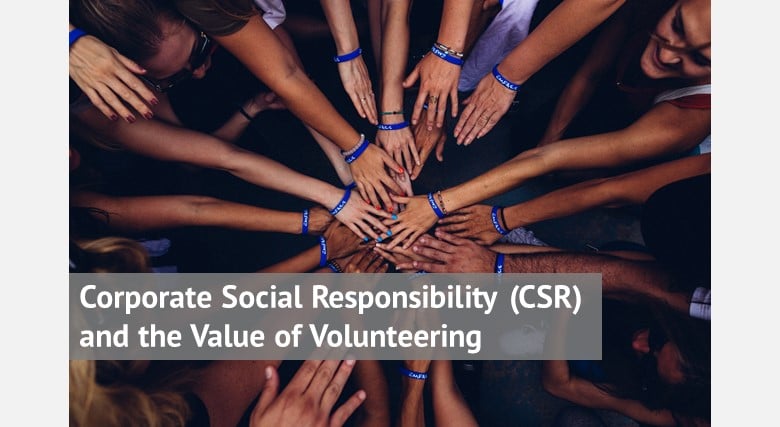‘‘What is the essence of life? To serve others and to do good.’’ This statement has been coined by Aristotle and it in a way summarizes the very nature of volunteering. Volunteering as a form of giving back to others can have benefits both for individuals and society. Nowadays, volunteering is a key part of any Corporate Social Responsibility (CSR) strategy and can bring numerous benefits both to employees and companies and organizations themselves. Also, it demonstrates that a company is engaged in providing return to society beyond traditional charitable or philanthropic investments. Employee volunteering programs not only benefit the community, but they also add value to the recruitment, retention, training, development, loyalty and overall fulfillment of a company’s employee.
Employee engagement & volunteering
The link between employee engagement and volunteering is a real and strong one. Namely, corporate volunteering programs increase engagement levels at work by creating experiences that can address the individual’s need for meaning, accomplishment, personal fulfillment and humanity. Demonstration of employers’ support for their employee’s interests outside of the workplace environment can enhance employee engagement. Also, by providing the opportunity to employees to ingrate the various parts of their lives into a holistic expression of their individual values leads to engagement. It could be said that the very nature of volunteering contributes to engagement. A recent survey has showcased that volunteering boosts employee engagement and pride, with 89% of volunteers reported increased job satisfaction and 87% of them reported greater pride in the company.
Attracting & Recruiting Millennials
Companies and organizations are aware that millennials have a unique perspective on employment and rather than asking about salary and benefit packages, millennials are asking about a company’s corporate social responsibility. A Millennials Survey has showed that “59% of Millennials gravitated toward companies with pronounced Corporate Social Responsibility (CSR) programs.” This suggest that organizations that have well-developed CSR programs and strategies that also include volunteering will be able to attract and retain the new generation of employees. Millennials are largely motivated by a desire to give back to the world, and increasingly search for employers that allow and enable them to create positive impact. Research from Cone Communications has showcased that 74% of employees find their job more fulfilling when given the opportunity to make a positive impact at work, 93% want to work for a company that cares about them as an individual and 51% won’t work for a company that doesn’t have strong social and environmental commitments.
Employee development
Employee development often takes place through some type of formalized training that is focused on developing of “hard” as well as “soft” skills. Yet, employee volunteering programs enable employees to acquire “soft” as well as relevant work-related skills. Namely, through the process of volunteering, they gain experience and understandings that make them more effective in their roles with the company. Usually, employees acquire soft skills such as communication, management and leadership. Moreover, volunteering is a great way for employees to work together outside of the office and build relationships and ultimately become better at working in teams. A survey undertaken by Accenture in the United Kingdom and Ireland has showed that volunteering develops people and fundamentally strengthens the business and 76% of volunteers said they developed core work skills.
Employee Health
Volunteering provides individual health benefits in addition to social benefits. An earlier research conducted in 2007 by the Corporation for National and Community Service, Office of Research and Policy Development, has demonstrated that volunteering leads to better health and that older volunteers are the most likely to receive physical and mental health benefits from their volunteer activities. Also, the research has established a strong relationship between volunteering and health: those who volunteer have lower mortality rates, greater functional ability, and lower rates of depression later in life than those who do not volunteer.
The undeniable benefits of volunteering for organizations
All the benefits stated above can definitely help an organization’s bottom line while also serving the community. Volunteering can undeniably strengthen an organization and can improve its corporate culture in numerous ways. It presents what an organization stands for, improves employee attraction and retention, encourages employees to work together, develops stronger customer relationships and enhances corporate brand image. Of course, any volunteering scheme in order to be successful, needs to part of a structured approach, with clear priorities, goals and processes, linked directly to organizational objectives and the ability to measure its impact. Successful volunteering schemes are based on structured, honest and regular engagement with employees, and this is exactly where their strength lies.
Photo by Perry Grone on Unsplash

